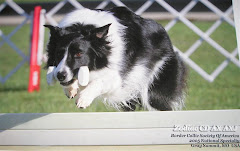No this isn't about the book or the movie. But I probably got your attention. This is actually about animals, in a more appropriate way.
There is a movement in many cities to become "no-kill" these days. This sounds like a great idea. It's great for PR and probably even better for fundraising. No one likes to give money to the place killing kittens after all. But those of us working in the trenches, who see the truth about pet ownership and overpopulation see the other side. This is not always a great idea. It would be nice if it were, but it's not.
Let's face the facts. There are far more pets in this country than there are homes. That should go without saying right? I mean if that were not not the case then this wouldn't even be an issue. And there are certainly more pets than there are good homes, or really even mediocre homes. So now look at what happens when we start promoting no-kill. Dogs and cats end up going to less than desirable homes so that shelters and and cities can proudly boast about their decrease in euthanasias and high adoption rates.
Our local humane society has recently reduced its screening process to merely making sure that the adopter's current pets are up to date on a rabies vaccine. In our county that means they have seen the vet at least one time in the last two years. And that could have been at a local Rabies clinic where there was not an exam given. It doesn't account for other appropriate vaccinations, parasite prevention, overall wellness of the pet or give any consideration to what kind of lifestyle the pet will have. In other words, the animal in question could end up living on a chain tied to a tree with a dirty water bowl, covered in fleas for the rest of his life. Is that better than euthanasia? Is that worth being able to promote increased adoption rates? What about all the people that let their dog run loose, abandon or dump it? These dogs just end up in the shelter to go through the cycle again.
There are numerous other programs and specials that go on in shelters around the county that also put less than desirable people on the fast track to pet ownership. Programs like $1 cat adoptions, two for the price of one, and 1/2 price adoptions of large dogs. If a person can't or won't pay a reasonable full price adoption fee, what makes us think they will be willing to take adequate care of a pet that may live 10-15 years?
That's not to say that there aren't good adopters and good families. But if we no longer select for them then are we really doing the homeless pets any favors? We like to believe that owning a pet is a privilege, and not a right. But given how easy it is for a person to obtain a pet, with many available for free or cheap, and the very low standards required for keeping a pet, I don't really know how true that can be.
And it's not always rosy for the pets in the shelter either. There is the obvious problem of pets being adopted out to lower quality homes, but what about the less adoptable or even unadoptable pets that remain in the shelter? No-kill shelters have an admirable goal and their hearts are in the right place. But some are very extreme in their "must save them all" agenda and quite frankly, not all pets are adoptable. It's not always the pet's fault. In fact, often times it's the fault of the irresponsible owner who brought them in, abandoned them or in somehow parted ways with them. But the fact still remains that there are these problem animals. It could be a stray cat so feral it can't be handled or hides all the time. A dog that is aggressive towards people or other animals. These pets are a liability if they are adopted out. But commonly, they are not adopted out and live year after year in a shelter, confined to a run or cage with the only human contact being that of their caretakers, whom they may be fearful or or aggressive too. This isn't a fair life for this animal. To me, there are worse fates than a humane euthanasia. And these animals are taking up cage space for friendly, healthy pets that could easily be adopted. Hopefully to good homes that keep them healthy and friendly.
There is not an easy answer to this dilemma. At what point to do we consider shelter life or home life better or worse than euthanasia? How do we determine which animals are fit for adoption? Everyone has a different standard, different opinion on quality of life and suitability of ownership. For our border collie rescue, we don't take in dangerous dogs. And we have very high requirements of our adopters. But that doesn't necessarily make us right and others wrong. It just means there is no universal line to determine what right and wrong, good or bad, adoptable or unadoptable really are.
The Big Number 3
1 week ago


.jpg)
.jpg)



.jpg)



1 comment:
people have sometimes lost sight of what shelters are trying to do. There is a pet adoption place here. They must not have done to much chekcing on my neighbors, before giving a young dog. They had the borther to my Mickey. He got run over by a car. They just alwys opened the door and let him run free. He was run over and the person didnt stop. They only good thing was he was killl right away. Flat as a pancake. And I was so mad at my husband and neightbor for going and picking the dog up off the street and disposing of him. They should have made the family come out and do it. So they knew what they were responsible for. (their second dog run over by a car) Guess what, the new dog is just let out the door and runs the street again. Just to upsetting.
Post a Comment